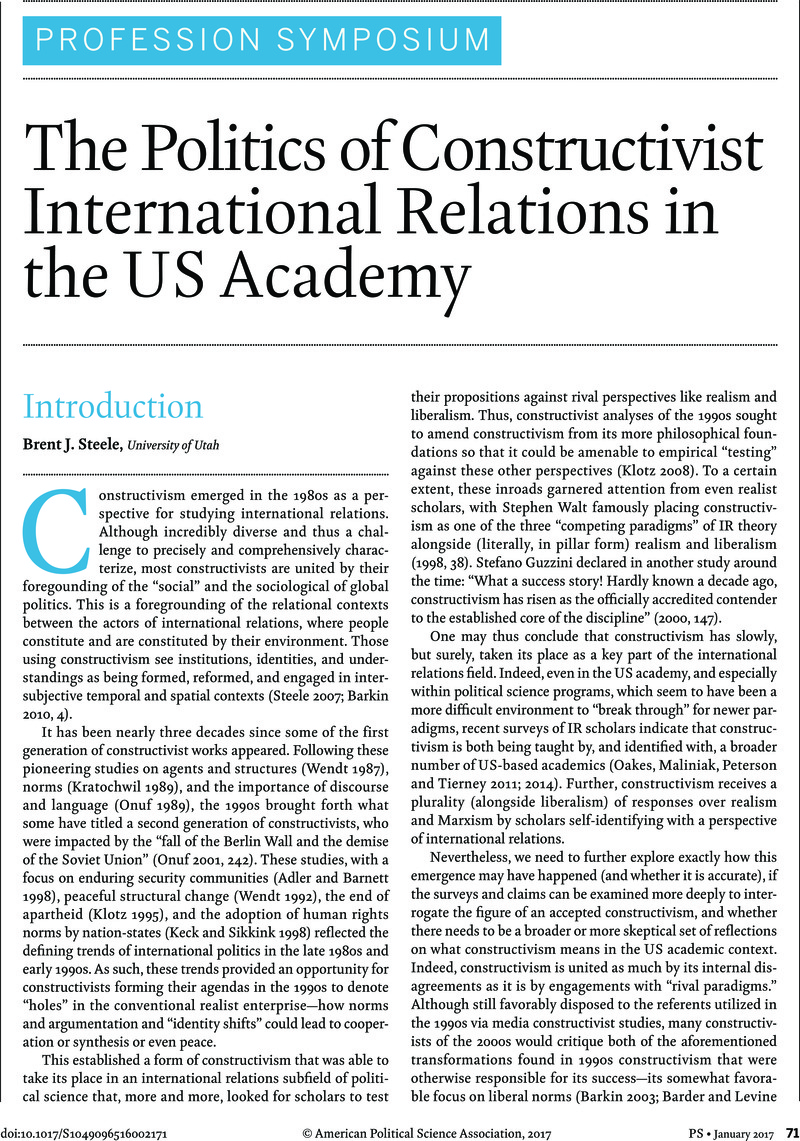Crossref Citations
This article has been cited by the following publications. This list is generated based on data provided by Crossref.
Peys, Christopher
2021.
On the global politics of “decency” and “restraint”.
Journal of International Political Theory,
Vol. 17,
Issue. 3,
p.
553.





